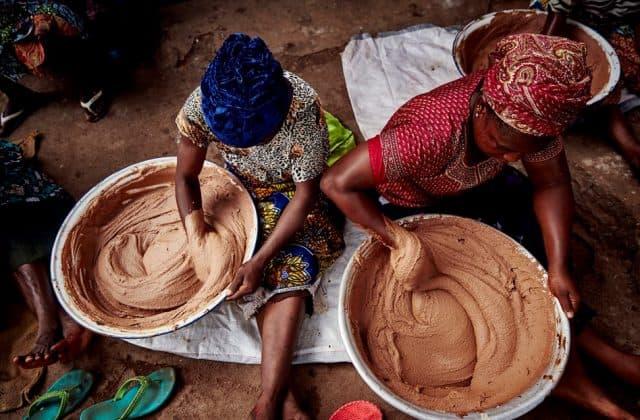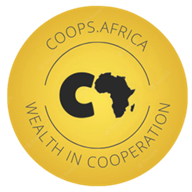🥥 Shea: Ghana’s Golden Nut of Wealth and Wellness

In the sun-drenched savannahs of northern Ghana, a remarkable tree thrives — ancient, resilient, and generous. From its fruit comes the humble shea nut, a small brown kernel packed with centuries of tradition, healing power, and economic potential. Known locally as “Nkuto” in Akan and “Kpagnin” in Dagbani, shea is far more than a natural moisturizer — it is a gift to Ghana.
🌿 What is Shea?
The shea tree (Vitellaria paradoxa) is indigenous to the dry Sahel region of West Africa and grows wild across much of northern Ghana. It begins bearing fruit after about 15 years and can live for over 200 years. Its fruit resembles a small avocado, and inside is the shea nut — the source of shea butter, Ghana’s “white gold.”
Shea butter is extracted from these nuts through a labor-intensive process that involves harvesting, drying, roasting, grinding, kneading, and finally boiling the paste to extract the rich, creamy fat.
🧴 Uses of Shea Butter
Shea butter has an incredible range of applications:
💄 In Beauty & Cosmetics:
-
Moisturizes skin and hair
-
Reduces wrinkles and stretch marks
-
Soothes eczema and rashes
-
Natural sun protection (SPF ~6)
-
Used in lotions, creams, balms, and hair products
🥘 In Food:
-
Used in local cooking as oil
-
A cocoa butter substitute in chocolate
-
Safe for frying and sautéing
🧪 In Pharmaceuticals & Industry:
-
Used as a base in medicinal ointments
-
Ingredient in soaps and candles
-
Raw material for eco-friendly lubricants and polishes
🇬🇭 Shea’s Benefit to Ghana
👩🏾🌾 1. Women’s Economic Empowerment
Shea production is almost entirely driven by rural women. An estimated 600,000 women in Ghana are involved in the shea value chain. For many, it’s their primary source of income during the dry season. Co-operatives, especially women-led ones, are helping these producers gain access to better markets, training, and fairer prices.
💰 2. Export Revenue
Ghana exports thousands of metric tons of raw and processed shea annually. Shea butter is now among the country’s top non-traditional exports, contributing to foreign exchange earnings and putting Ghana on the global natural beauty map.
🌱 3. Sustainable Livelihoods
Unlike other cash crops that require clearing forests or pesticides, shea trees grow wild and are part of the natural ecosystem. Promoting shea encourages climate-resilient, environmentally friendly income generation.
🏭 4. Local Industry Growth
A growing number of Ghanaian entrepreneurs are building brands around shea — from soaps and creams to luxury skincare lines for the global market. The development of local shea processing factories also creates jobs and reduces reliance on raw exports.
📈 Challenges & Opportunities
Despite its value, Ghana faces challenges in the shea industry:
-
Lack of modern processing equipment
-
Middlemen exploiting rural producers
-
Limited access to international markets
-
Climate change and deforestation threats
Yet, the opportunity is immense. With investment in training, branding, processing, and women’s co-operative structures, Ghana could become Africa’s leading hub for premium, ethically sourced shea products.
💬 Final Word: A Nut Worth Nurturing
The shea nut is more than a source of butter — it is a symbol of resilience, beauty, and economic dignity. As Ghana’s co-operative and entrepreneurial sectors rise, so does the chance to reclaim control of this golden resource and ensure that the women who harvest it become the true beneficiaries of its global demand.
Let’s invest in shea. Let’s protect the trees. Let’s empower the hands that harvest it.
Shea is Ghana’s gift — to the world and to itself.
Would you like a version of this article tailored for an investor pitch deck, a school curriculum, or a co-op marketing brochure?
- Economic
- Social and Development
- Communication, Marketing & Success Stories
- Regulation
- Outro
- SADC
- African Union



